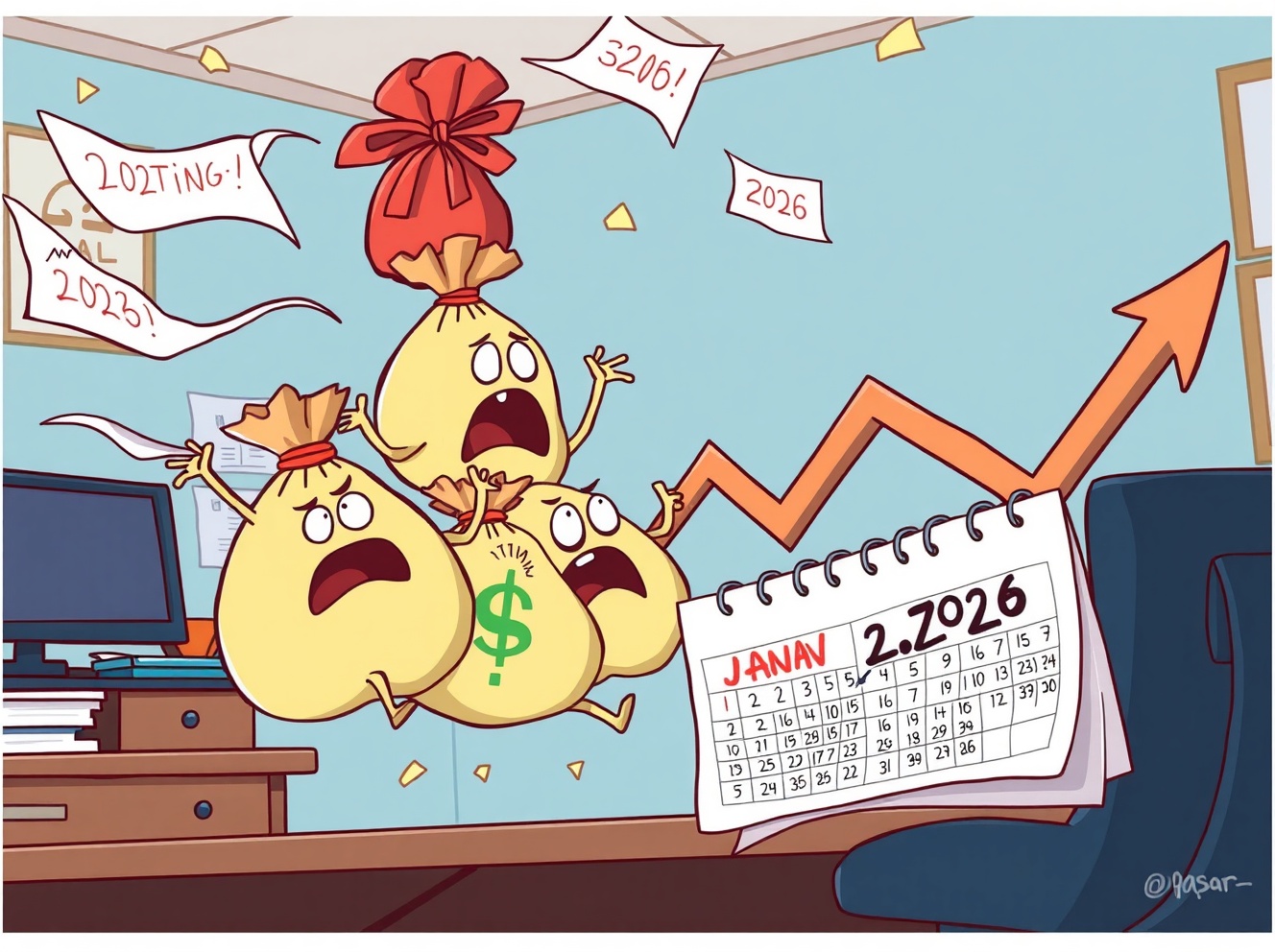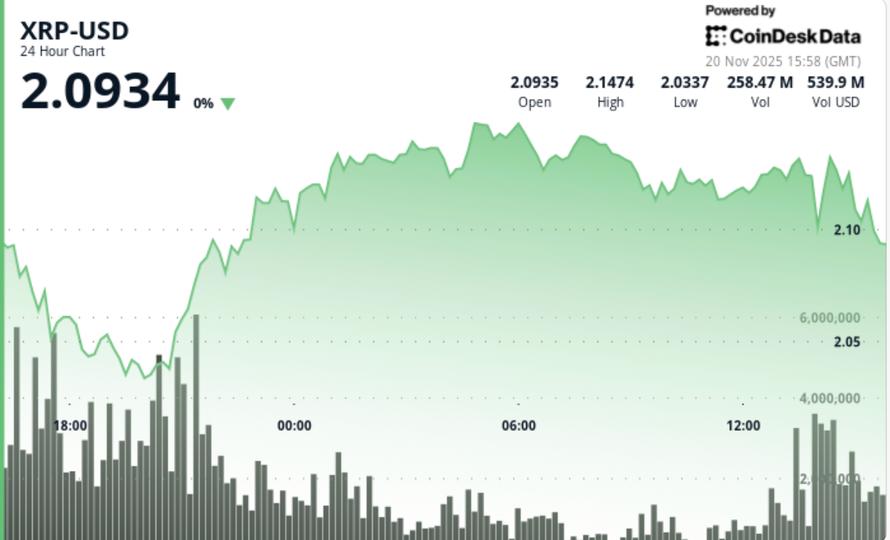
Lisbon, Portugal, November 20th, 2025, Chainwire The Crypto Content Creator Campus (CCCC) 2025 wrapped up a successful, sold-out three-day event in Lisbon, Portugal, from November 14 to 16, 2025. Hosted at the iconic Carlos Lopes Pavilion , the campus united top creators and innovators to shape the future of content creation within the Web3 and crypto sphere. Day 1 of the event showcased the new era of influence, AI-driven monetisation, and creator-led crypto adoption. Key themes highlighted the evolution of affiliate marketing, AI-powered monetisation, and masterclasses in audience attention and authenticity. Ben Zhou , Bybit Co‑Founder & CEO, delivered the headline keynote, “Empowering the New Age of Affiliate Marketing,” offering a candid look into how affiliate marketing has transformed. Zhou reminded creators of the fundamentals: attention, value, and conversion, emphasising that compelling stories, strong thumbnails, aspirational lifestyle content, and consistent value delivery remain the creator’s responsibility. Looking ahead to 2025–2030, he highlighted the “Age of Compliance and Finfluencers” , noting that as crypto becomes a regulated global financial system, the creators who build for the long term will be the ones who shape its future. The centerpiece panel, “Smart Monetization with AI,” featuring Sergej Loiter , Nick Tran , and Tom Schmidt , explored how AI is reshaping earning models. The unanimous consensus was that “AI is not a threat, but an equaliser. It gives creators the tools to catch up, scale up, and compete globally”. Speakers stressed that creators must think of their content as a product: audience-first, data-driven, and long-term , and urged creators to rethink platforms, using them as one huge ecosystem rather than silos. Nuseir Yassin ( Nas Daily ) delivered a masterclass on influence, credibility, and community-driven trading , mapping the state of social media monetisation. Yassin’s message was that content creation now demands both authenticity and velocity , advising creators to triple their content output with AI and localise everything to reach people’s hearts. Day 2 continued to deliver compelling masterclasses and cultural conversations. The day opened with a live Creator House Judging Panel where top industry figures evaluated rising content creators. Panelists, including Nas Daily , Nick Tran , Nick Puckrin , and Musa Tariq judged teams on narrative originality, platform savvy, and monetization potential. This session reinforced the Campus’s mission to develop a new generation of cross-platform creators grounded in influence, integrity, and craft. A key highlight was an intimate Fireside Chat with Dr. Maye Musk , titled “Monetizing a Personal Brand into Durable Income”. Drawing from her decades of experience, Musk emphasized that the foundation of any lasting personal brand lies in authenticity , stating: “Stay true to yourself – why would you change?”. Immediately following, Musk was joined by Musa Tariq , former marketing executive at Airbnb , Apple , and Nike , and Philippe Ben Mohamed , Head of Digital Innovation at Tomorrowland , for a panel on “Realising Monetization in the New Era.” The conversation explored how creators can sustainably and ethically monetize their communities. Tariq noted, “Content creators should consider themselves entrepreneurs with the opportunity of multiple streams of income” , while Mohamed emphasized a year-round strategy: “We aim to develop full 365-day plans for creators, true ecosystems, not short bursts of engagement”. He also stressed the importance of differentiation in an increasingly saturated industry. Day 2 underscored a key truth: authenticity isn’t just an advantage, it’s essential. In a landscape shaped by AI, platform evolution, and cultural shifts, the creators who stay rooted in their identity, values, and communities will be the ones who define the next decade of influence. The campus closed with a cocktail reception and a gala awards ceremony, celebrating standout creators and teams for achievements in innovation, education, community-building, and cultural expression. As this year’s campus concludes, CCCC looks ahead to 2026, where the community will continue to evolve with sharper tools, stronger platforms, and more sustainable monetisation models Caption: Nuseir Yassin (Nas Daily) outlined the state of social media monetization in 2025 at the Crypto Content Creator Campus 2025. Caption: Dr. Maye Musk shared her thought-provoking ideas during the fireside chat session titled “Monetizing a Personal Brand into Durable Income” at CCCC 2025. Event Photos can be found in the link: https://drive.google.com/drive/folders/1WUnk2Kj_du0RlSMZUMfqSq1OabyLxx5q?usp=sharing About Crypto Content Creator Campus (CCCC) CCCC is a team of industry experts and visionaries committed to shaping the future of content creation within the Web3 and crypto sphere. Driven by a shared passion for creating a high-value community, we’ve curated a campus that promises an experience unlike any other. The CCCC 2025 will be held in Lisbon, Portugal, from November 14 to 16, 2025. For more details about CCCC, please visit: https://www.cccc.buzz/ For inquiries, please contact: hello@cccc.buzz Instagram | X Contact Tony Au Tony.au@bybit.com
CryptoIntelligence
You can visit the page to read the article.
Source: CryptoIntelligence
Disclaimer: The opinion expressed here is not investment advice – it is provided for informational purposes only. It does not necessarily reflect the opinion of BitMaden. Every investment and all trading involves risk, so you should always perform your own research prior to making decisions. We do not recommend investing money you cannot afford to lose.
Critical Warning: MSCI Index Removal Could Trigger $2.8 Billion Strategy Exodus by 2026

BitcoinWorld Critical Warning: MSCI Index Removal Could Trigger $2.8 Billion Strategy Exodus by 2026 Imagine waking up to discover your investment could face nearly $3 billion in outflows overnight. That’s the stark reality JPMorgan warns about regarding potential MSCI index removal consequences. The banking giant’s recent analysis reveals how index inclusion changes can dramatically reshape fund flows and investment landscapes. What Does MSCI Index Removal Mean for Investors? When a company faces MSCI index removal, institutional investors who track these indexes must sell their positions. This creates forced selling pressure that can significantly impact stock prices and fund flows. JPMorgan’s analysis specifically highlights how Strategy could experience substantial outflows if delisted from major indexes. The bank projects approximately $2.8 billion in immediate outflows if the MSCI index removal occurs. However, the situation becomes more concerning when considering broader implications. Index funds and ETFs that mirror MSCI compositions would be compelled to rebalance their portfolios, creating a domino effect across markets. How Severe Could the Financial Impact Be? JPMorgan’s warning extends beyond the initial $2.8 billion estimate. The bank suggests an additional $8.8 billion could exit if other index providers follow suit with their own delisting decisions. This represents a potential total outflow exceeding $11 billion, which would represent a substantial portion of Strategy’s market presence. The key factors driving this massive potential outflow include: • Passive investment tracking – Funds that automatically follow index compositions • Institutional rebalancing – Large-scale portfolio adjustments by major investors • Contagion effect – Other index providers potentially following MSCI’s lead • Market sentiment impact – Additional selling from nervous retail investors When Should Investors Prepare for This Scenario? Mark your calendars for January 15, 2026. This date represents the next scheduled MSCI index rebalancing, making it the crucial timeframe investors should monitor. While this seems distant, institutional investors typically begin positioning months in advance, meaning market impacts could materialize well before the actual date. The 2026 timeline provides both challenge and opportunity. Investors have time to assess their positions and develop contingency plans. However, it also means prolonged uncertainty as markets anticipate the potential MSCI index removal decision and its consequences. What Protective Measures Can Investors Take? Proactive investors should consider several strategies to mitigate potential MSCI index removal impacts. Diversification remains the cornerstone of risk management, ensuring no single index decision can disproportionately affect your portfolio. Additionally, monitoring institutional ownership patterns and fund flow data can provide early warning signals. Key protective measures include: • Portfolio rebalancing – Gradually adjusting positions before potential forced selling • Alternative investments – Exploring non-correlated assets to offset potential losses • Hedging strategies – Using options or other derivatives to protect against downside risk • Continuous monitoring – Staying updated on MSCI announcements and analyst reports Why Does This MSCI Index Removal Warning Matter Now? JPMorgan’s analysis serves as a crucial reminder that index composition changes represent significant market-moving events. The potential $2.8 billion outflow from MSCI index removal alone would rank among substantial financial market adjustments. When combined with possible additional outflows from other index providers, the total impact could reshape Strategy’s investor base and trading patterns. This situation underscores how passive investing trends have increased the importance of index inclusion decisions. As more capital flows into index-tracking funds, the consequences of MSCI index removal decisions become increasingly magnified across global markets. Conclusion: Navigating the Index Inclusion Landscape JPMorgan’s warning about potential MSCI index removal consequences highlights the evolving nature of modern investing. The days when index changes were minor footnotes have passed. Today, these decisions can trigger billion-dollar fund flows and significantly alter investment outcomes. While the January 2026 rebalancing provides time for preparation, informed investors should begin their assessment processes now rather than waiting for potential turbulence. The key takeaway remains clear: in today’s index-dominated investment world, understanding the implications of MSCI index removal decisions is no longer optional—it’s essential for portfolio protection and strategic planning. Frequently Asked Questions What triggers MSCI index removal? MSCI regularly reviews index components based on market capitalization, liquidity, and other qualification criteria. Companies that no longer meet these standards face potential removal during scheduled rebalancing periods. How quickly do outflows occur after index removal? Outflows typically begin immediately after the official removal date as index-tracking funds rebalance their portfolios. However, some anticipatory selling may occur in the weeks leading up to the change. Can companies recover after MSCI index removal? Yes, recovery is possible if the company addresses the issues that led to removal and requalifies for inclusion during future rebalancing periods. However, the process can take considerable time and fundamental improvement. Do all index providers make simultaneous removal decisions? No, different index providers have independent review processes and timelines. However, major providers often make similar decisions based on common qualification criteria. How can retail investors monitor potential index changes? Retail investors should follow announcements from major index providers, monitor analyst reports, and track institutional ownership changes through regulatory filings and financial news sources. What other consequences follow MSCI index removal beyond outflows? Additional impacts include reduced analyst coverage, decreased trading liquidity, higher volatility, and potential credit rating reviews as market visibility declines. Found this analysis crucial for understanding modern investment risks? Share this article with fellow investors on social media to help them prepare for potential index changes and protect their portfolios from unexpected market movements. To learn more about the latest investment strategy trends, explore our article on key developments shaping institutional investment future market positioning. This post Critical Warning: MSCI Index Removal Could Trigger $2.8 Billion Strategy Exodus by 2026 first appeared on BitcoinWorld . CryptoIntelligence

Revolutionary Crypto Funds: 6 Major Japanese Asset Managers Embrace Digital Assets
BitcoinWorld Revolutionary Crypto Funds: 6 Major Japanese Asset Managers Embrace Digital Assets Imagine waking up to news that six of Japan’s largest asset management firms are actively exploring crypto funds. This isn’t speculation – it’s happening right now as Japan’s financial landscape undergoes a dramatic transformation that could reshape how institutional investors approach digital assets worldwide. Why Are Japanese Asset Managers Embracing Crypto Funds Now? The timing couldn’t be more significant. Japan’s Financial Services Agency is currently reviewing a proposal that would allow the establishment of cryptocurrency investment trusts. This regulatory shift has triggered unprecedented interest from major players including: Mitsubishi UFJ Asset Management Nomura Asset Management SBI Global Asset Management Daiwa Asset Management Asset Management One Amundi Japan These institutions represent trillions in managed assets, making their move into crypto funds a watershed moment for the entire digital asset ecosystem. What Makes Crypto Funds So Attractive to Institutional Investors? Traditional asset managers see crypto funds as the next frontier in portfolio diversification. Unlike individual cryptocurrency purchases, these structured crypto funds offer: Professional management by experienced financial experts Regulatory compliance within established frameworks Risk mitigation through diversified crypto exposure Accessibility for mainstream investors The potential for crypto funds to bridge traditional finance with digital assets represents a monumental shift in investment strategy. How Will Crypto Funds Transform Japan’s Investment Landscape? Japan has always been a crypto-forward nation, but the entry of these asset management giants signals a new era. The development of regulated crypto funds could: Increase institutional adoption of digital assets Provide safer entry points for retail investors Establish Japan as a global crypto hub Set new standards for crypto fund management This move positions Japan at the forefront of the institutional crypto revolution, potentially influencing global financial markets. What Challenges Do Crypto Funds Face in Japan? Despite the excitement, implementing successful crypto funds requires navigating several hurdles. Regulatory compliance remains paramount, with the FSA carefully considering investor protection measures. Additionally, these firms must develop: Robust security protocols for digital asset storage Transparent valuation methodologies Comprehensive risk management frameworks Educational resources for potential investors The success of these crypto funds will depend on balancing innovation with responsible financial practices. What Does This Mean for Global Crypto Adoption? When six major Japanese asset managers express interest in crypto funds, the entire world takes notice. This development could accelerate similar initiatives in other developed markets. The creation of regulated crypto funds provides: Legitimacy to the digital asset class Institutional-grade investment vehicles Enhanced market liquidity Improved price discovery mechanisms The Japanese approach to crypto funds might become the blueprint for other nations considering similar financial products. Conclusion: The Future of Crypto Funds in Japan The interest from Japan’s asset management elite in crypto funds marks a pivotal moment in financial history. As regulatory barriers lower and institutional confidence grows, these crypto funds could unlock trillions in capital for the digital asset space. The combination of Japan’s technological sophistication and financial expertise positions these crypto funds for potential global leadership in the evolving cryptocurrency investment landscape. Frequently Asked Questions Which Japanese companies are interested in crypto funds? Six major asset managers have shown interest: Mitsubishi UFJ Asset Management, Nomura Asset Management, SBI Global Asset Management, Daiwa Asset Management, Asset Management One, and Amundi Japan. What are crypto funds? Crypto funds are professionally managed investment vehicles that provide exposure to cryptocurrencies and digital assets through regulated financial structures, similar to traditional mutual funds or ETFs. Why is Japan allowing crypto funds now? Japan’s Financial Services Agency recognizes the growing demand for regulated digital asset investment options and aims to provide safe, compliant avenues for both institutional and retail investors. When will these crypto funds launch? While no specific timeline has been announced, the regulatory proposal is under active consideration, suggesting potential launches could occur within the next 12-18 months. Are crypto funds safe for investors? Regulated crypto funds typically offer enhanced security and compliance measures compared to direct cryptocurrency purchases, though all investments carry some level of risk. How can I invest in Japanese crypto funds? Once launched, these crypto funds will likely be available through traditional investment channels, including brokerage accounts and financial advisors, following standard investment procedures. Found this insight into Japan’s crypto funds revolution valuable? Share this article with fellow investors and cryptocurrency enthusiasts on your social media platforms to spread awareness about this groundbreaking development in digital asset management! To learn more about the latest crypto market trends, explore our article on key developments shaping cryptocurrency institutional adoption. This post Revolutionary Crypto Funds: 6 Major Japanese Asset Managers Embrace Digital Assets first appeared on BitcoinWorld . CryptoIntelligence











